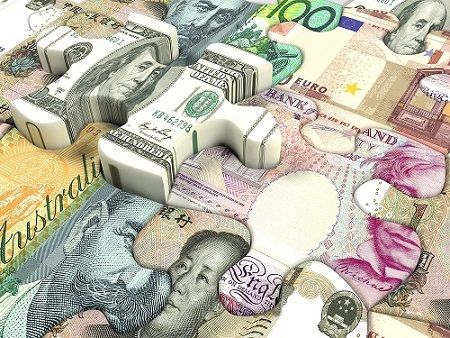EUR/JPY drifts higher above 165.50 after BoJ surprises rate hike

- EUR/JPY gains ground around 165.75 in Wednesday’s Asian session, up 0.33% on the day.
- The BoJ surprised the markets by raising interest rates by 15 bps and trimming bond buying.
- German GDP numbers and inflation data add to the ECB's challenges with cutting interest rates.
The EUR/JPY cross trades on a stronger note near 165.75 during the Asian session on Wednesday. The Japanese Yen (JPY) edges lower after the Bank of Japan (BoJ) decided to raise the interest rate at its July meeting on Wednesday.
Following the two-day monetary policy review meeting on Wednesday, the BoJ surprised the markets by raising its short-term rate target by 15 basis points (bps) from the range of 0%-0.1% to 0.15%-0.25%. Additionally, the Japanese central bank decided to taper Japanese government bonds (JGB) buying to 3 trillion per month as of the first quarter of 2026. The Japanese Yen (JPY) loses ground despite the BoJ hiking its short-term rate.
Disappointing economic growth and a surprising acceleration in German inflation add to the European Central Bank’s uncertainty about further interest-rate cuts in September. The German Harmonized Index of Consumer Prices (HICP) rose 2.6% YoY in July, compared to 2.5% in June, above the consensus of 2.4%. This figure triggered the prospect that Germany’s prolonged stagflation will continue in the coming quarters.
Meanwhile, the German economy shrank by 0.1% QoQ after growing 0.2% in Q1, the first estimate data published by Destatis showed on Tuesday. This figure came in weaker than the expected 0.1% increase. The Eurozone economy expanded by 0.3% in the three months to the end of June, above the market consensus of a 0.2% increase on a quarterly basis. Traders will take more cues from the preliminary Eurozone CPI data and Germany’s Retail Sales, which are due later on Wednesday.
Bank of Japan FAQs
What is the Bank of Japan?
The Bank of Japan (BoJ) is the Japanese central bank, which sets monetary policy in the country. Its mandate is to issue banknotes and carry out currency and monetary control to ensure price stability, which means an inflation target of around 2%.
What has been the Bank of Japan’s policy?
The Bank of Japan has embarked in an ultra-loose monetary policy since 2013 in order to stimulate the economy and fuel inflation amid a low-inflationary environment. The bank’s policy is based on Quantitative and Qualitative Easing (QQE), or printing notes to buy assets such as government or corporate bonds to provide liquidity. In 2016, the bank doubled down on its strategy and further loosened policy by first introducing negative interest rates and then directly controlling the yield of its 10-year government bonds.
How do Bank of Japan’s decisions influence the Japanese Yen?
The Bank’s massive stimulus has caused the Yen to depreciate against its main currency peers. This process has exacerbated more recently due to an increasing policy divergence between the Bank of Japan and other main central banks, which have opted to increase interest rates sharply to fight decades-high levels of inflation. The BoJ’s policy of holding down rates has led to a widening differential with other currencies, dragging down the value of the Yen.
Is the Bank of Japan’s ultra-loose policy likely to change soon?
A weaker Yen and the spike in global energy prices have led to an increase in Japanese inflation, which has exceeded the BoJ’s 2% target. With wage inflation becoming a cause of concern, the BoJ looks to move away from ultra loose policy, while trying to avoid slowing the activity too much.







